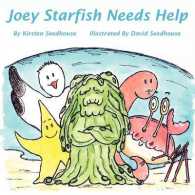- ホーム
- > 洋書
- > 英文書
- > Politics / International Relations
基本説明
On the basis of recently declassified documents, Gavin reassesses the strategy of flexible response, the influence of nuclear weapons during the Berlin Crisis, the origins of and motivations for U.S. nuclear nonproliferation policy, and how to assess the nuclear dangers we face today.
Full Description
"Gavin not only succeeds in disentangling postwar nuclear history from the US-Soviet rivalry of the Cold War, but provides a deeper and more complex understanding of the long-term effects of nuclear weapons on Great Power relations."— Matthew Jones â• International Affairs
We are at a critical juncture in world politics. Nuclear strategy and policy have risen to the top of the global policy agenda, and issues ranging from a nuclear Iran to the global zero movement are generating sharp debate. The historical origins of our contemporary nuclear world are deeply consequential for contemporary policy, but it is crucial that decisions are made on the basis of fact rather than myth and misapprehension. In Nuclear Statecraft, Francis J. Gavin challenges key elements of the widely accepted narrative about the history of the atomic age and the consequences of the nuclear revolution.
On the basis of recently declassified documents, Gavin reassesses the strategy of flexible response, the influence of nuclear weapons during the Berlin Crisis, the origins of and motivations for U.S. nuclear nonproliferation policy, and how to assess the nuclear dangers we face today.
In case after case, he finds that we know far less than we think we do about our nuclear history. Archival evidence makes it clear that decision makers were more concerned about underlying geopolitical questions than about the strategic dynamic between two nuclear superpowers.Gavin's rigorous historical work not only tells us what happened in the past but also offers a powerful tool to explain how nuclear weapons influence international relations. Nuclear Statecraft provides a solid foundation for future policymaking.
Contents
1. History, Theory, and Statecraft in the Nuclear Age
2. The Myth of Flexible Response: American Strategy in Europe during the 1960s
3. Nuclear Weapons, Statecraft, and the Berlin Crisis, 1958-1962
4. Blasts from the Past: Proliferation Lessons from the 1960s
5. Nuclear Nixon
6. That Seventies Show: The Consequences of Parity Revisited
7. Same as It Ever Was? Nuclear Weapons in the Twenty-First Century
8. Global Zero, History, and the "Nuclear Revolution"
Notes
Index








